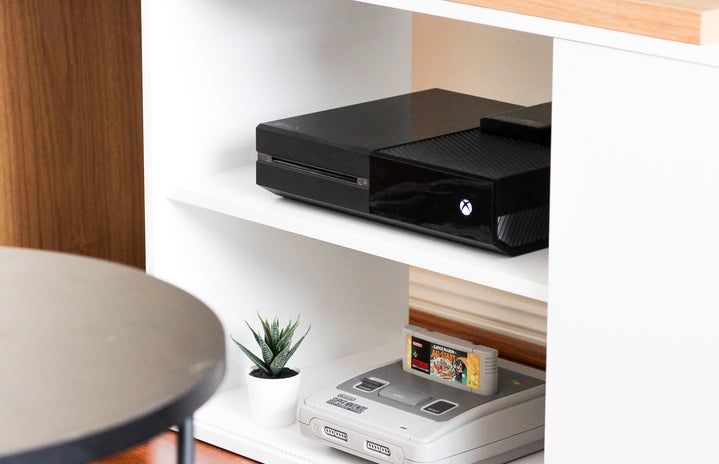Just as society appears to be making a shift towards diversity and inclusion by endorsing shows focusing on hard issues like “Dear White People” or companies such as Tommy Hilfiger and Aerie launching campaigns featuring models with disabilities, society may have taken a few steps in the wrong direction. Netflix’s plan to release the show “Insatiable,” which promotes fat-shaming, is tone deaf to the the realities of the sensitive material it covers. The show centers around Debby Ryan’s character who is known as “Fatty Patty.”
From the start, this show portrays the relentless bullying experienced by Patty due to her weight. Once Patty is physically attacked, her jaw is forcibly wired shut for the duration of the summer and because she can’t eat, she loses drastic amounts of weight and becomes stereotypically “hot.” Due to this newfound look, Patty is able to gain the respect of those who tormented her for her weight. She uses the opportunity to seek revenge and reinvent herself.
It is remiss to try and understand how Netflix’s marketing department, the writers or Debby Ryan herself thought this would be a good idea to produce. Women of all ages, especially young women, suffer from body dysmorphia and the emotions that come with it. This show encourages eating disorders for the sake of a cheap plot line. Instead of encouraging women to love their bodies and be confident as who they are, they are shown that losing weight is the real way to get what you want. By having Patty’s main character development be her drastic weight loss, the show promotes anorexia, which more than 2.2 million United States adolescents currently suffer from according to the National Institute of Mental Health. Another false narrative the show demonstrates is that once you lose weight, all of your problems disappear and you instantly become happy. This is not the reality of weight loss. Many women who lose a large proportion of their body weight continue to cope with body dysmorphia and difficult emotions.
The idea that Patty is only respected and treated like a human being once she’s lost weight is a concept that clearly forgets her inherent dignity. Claiming that she could only be “a brain, an athlete or a princess” if she fits society’s unrealistic definition of beauty is demeaning and implies that one’s worth is based solely on how they appear.
The only way to change the treatment of those who don’t abide by the beauty standards set by society is to shift the narrative. This narrative should be encouraging body positivity and self love regardless of shape, size, race, religion or sexual orientation. This is particularly relevant as the average American woman weights 168.5lbs and wears a size 16 or above, despite what is portrayed by the media.Via Racked.com
This show could have been an opportunity for real women to have an authentic conversation about living in a world that idealizes models who weigh 23% less than the average woman according to a study done by the Body Support Project. This show was a chance to talk about how, despite fat phobic societal norms, there is nothing wrong with loving yourself for who you are and loving what you see in the mirror. You’re not flawed, or ugly or unworthy because you aren’t the reinvented “mean girl” that appears on television.
Those defending this show as “satire” truly have no concept of how harmful and impactful body shaming is on young men and women struggling with accepting and loving themselves. This is particularly true of young girls who are impressionable and would view this harmful behavior as acceptable. Debby Ryan claims that the show is meant to address the flaws of equating thinness with worth and that the show does so through comedy. In reality, the only message the show conveys is the horribly misguided one that someone who isn’t conventionally pretty shouldn’t be happy or accepting of themselves.
There is currently a petition to stop the release of this show before it airs to prevent further damage. Perpetuating the toxic idea that women who are not skinny do not live as fulfilled a life is inexcusable. Society will continue to promote a culture of women tearing each other down instead of lifting each other up until all women, regardless of size, are portrayed in a narrative that does not discriminate. What’s needed are more portrayals of real women playing dynamic characters.



